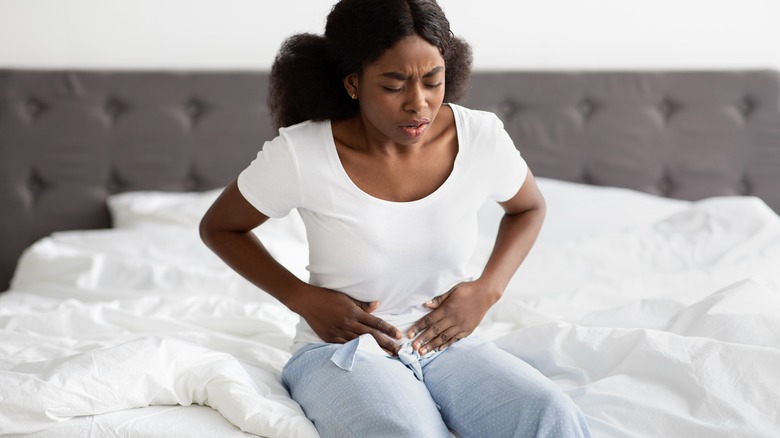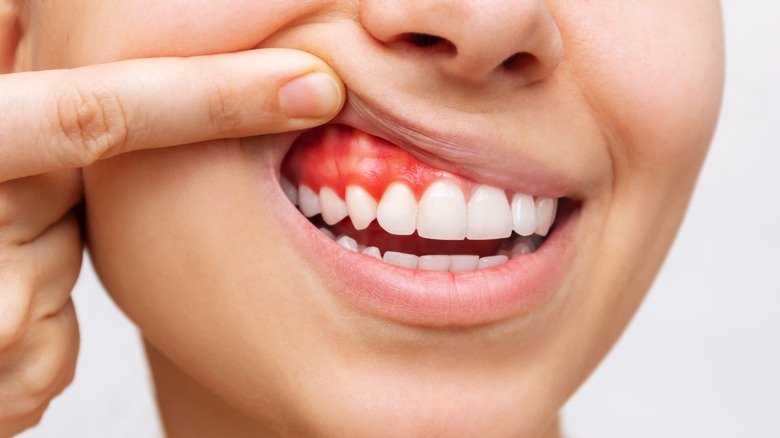Unexpected Period Symptoms You Might Have
Menstruation brings with it a whole host of unpleasant symptoms. WebMD explains that these symptoms are noticeable anywhere from one to two weeks before the actual onset of the period, which means you may spend up to half a month — every month — dealing with premenstrual syndrome (PMS). And you wouldn't be alone either, as 90% of reproductive-age women experience PMS (via WebMD).
Some of the most common period symptoms include acne, fatigue, insomnia, sore breasts, cramps, bloating, mood swings, headaches, and lower back pain. These symptoms are typically due to the hormone fluctuations that occur throughout the menstrual cycle, specifically having to do with levels of estrogen and progesterone, explains Healthline. Neurotransmitters in the brain also have a role to play in some of the mood changes experienced leading up to, and during, the period. For example, a decline in serotonin and dopamine in response to dropping estrogen levels can be responsible for both feelings of depression and poor sleep quality. Lifestyle factors may also worsen the symptoms you experience. One 2018 study found that alcohol consumption aggravates PMS symptoms.
Although period symptoms are uncomfortable and may disrupt your day-to-day life for a few days, you typically don't need to do much except wait them out. In extreme cases, your doctor can help you find ways to manage more severe symptoms. But there may be some additional symptoms that you're not attributing to your period and you should be.
These symptoms may mean your period is on its way
Cramps and moodiness are common symptoms of PMS, but there are other things that may surprise you during your menstrual cycle. Health surveyed a number of women to discover which period symptoms are the most unexpected and ended up with four contenders. The first is being constantly hungry before your period. You may feel a ravenous hunger that can be difficult to satiate. The outlet interviewed OB/GYN Christine Greves to understand how this symptom relates to the menstrual cycle. Greves explained that certain food cravings are kickstarted by hormone fluctuations, especially those for foods high in sugar and simple carbohydrates. This can lead to increased production of the hunger-producing hormone, ghrelin — causing you to eat more.
Another unusual symptom discovered by the Health survey was extra-sensitive skin. Greves chalks this one up to hormone fluctuations as well — especially estrogen, which is responsible for protecting and thickening the skin. When production drops during the period, it can leave the skin feeling more sensitive the normal.
Well+Good compiled a list of unexpected period symptoms of their own, naming back pain and stiffness as one. You can blame this on yet one more hormone — prostaglandin, which is responsible for the uterine contractions that lead to menstruation. If you also experience joint pain, know that this is simply due to a lower pain tolerance linked to drops in estrogen levels. The soreness should pass after your period ends.


